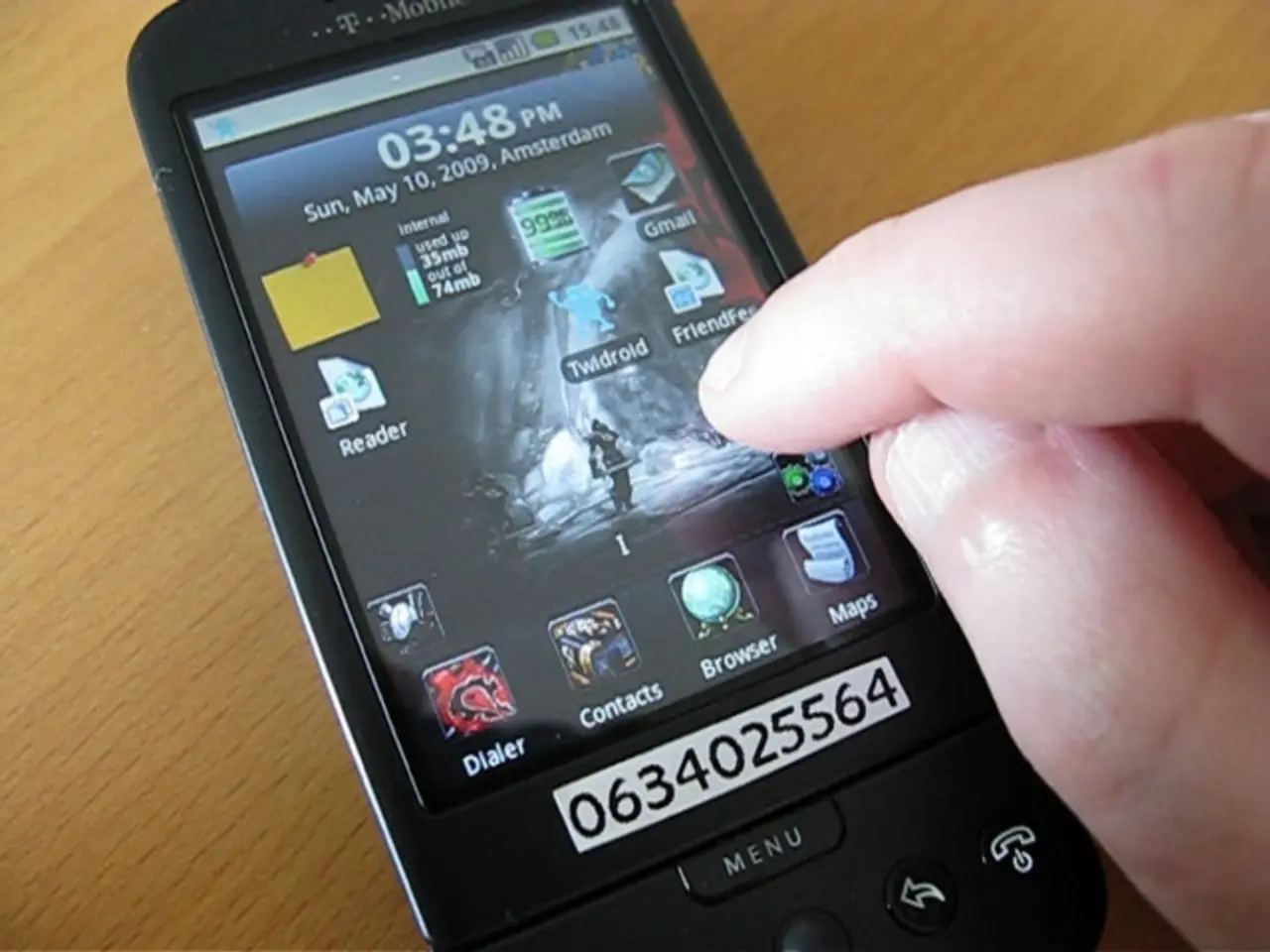"Fashionable French Application: Ten Ten - a popular choice that separates users"
In the digital age, a new French app called Ten Ten has taken the country by storm, particularly among Generation Z, with over a million new users in France in just one month. The app, which currently tops the charts on both the Apple Store and Android, has been compared to a walkie-talkie, allowing real-time voice notes to be sent to virtual friends. However, its popularity has not come without controversy.
The app's omnipresence can become very disruptive, especially in a classroom setting. Its instant and brutal transmission of messages raises significant concerns about privacy and security. For instance, Ten Ten requires the provision of numerous personal data to function, including name, first name, username, phone number, contacts, IP addresses, browser characteristics, and device characteristics.
However, specific impacts or concerns about the Ten Ten app in educational environments are not explicitly detailed in available data. Common concerns include how personal data (students' or educators') is collected, stored, and shared, whether data encryption and secure authentication are implemented, compliance with GDPR and other relevant privacy laws, the app’s policies on data retention and deletion requests, and the impact on user device security and possible vulnerabilities.
Students find it difficult to resist the trendy appeal of Ten Ten, despite its intrusive nature. The success of the app may not last if privacy and respect issues in professional and educational environments are not adequately addressed. Ten Ten can be disruptive in educational environments like schools, affecting concentration and respect.
Teachers have shared concerns about the app, stating that hearing a personal message aloud in the middle of class is surprising, disruptive, and disrespectful to the teacher. On the other hand, some teachers acknowledge the potential benefits of Ten Ten, such as its use for sharing homework outside of class.
Users can only escape voice messages by activating airplane mode or setting their phone to silent with the "Do Not Disturb" option. The app encourages peer support among students due to its increased reactivity.
As with any popular digital service, cybersecurity risks are present. Broader security incidents involving French firms highlight the importance of robust security measures to protect personal and educational data.
While the Île-de-France Mobilités app, a transport app in France, encrypts data in transit and allows users to request data deletion, users reported functional issues such as interference with NFC payments and limited ticket sharing, indicating some operational security/usability concerns. Discussions at privacy research events in France observe ongoing challenges with transnational compliance and data protection technology ambiguities, which may affect French apps’ legal handling of personal data and the protection of user rights in educational or other environments.
Without direct evidence, it is recommended to review official privacy policies and independent security audits of Ten Ten, consult regulatory bodies like CNIL, or user feedback for further specific assessment.
In conclusion, while French digital apps generally face considerable scrutiny and regulatory challenges on privacy and security, the available results do not detail specific impacts or concerns about the Ten Ten app in educational environments. However, the disruptions it causes in schools and the concerns it raises about privacy and security warrant a closer look and careful consideration.
[Cover photo credit: Rob Hampson]
References: 1. Futura Science, "Why is the French app Ten Ten, which has been a hit since its release, causing concern?" 2. France Info, "Ten Ten, the new application that takes up the codes of the walkie-talkie." 3. Libération, "What is Ten Ten, the new French application that is loudly making its way into classrooms?"
- The disruptions caused by the popular French app Ten Ten in educational settings, such as schools, are concerning due to its potential impact on concentration and respect, as well as raised privacy and security concerns.
- In addition to its potential benefits, such as peer support among students and sharing homework outside of class, the app Ten Ten faces scrutiny over how personal data is collected, stored, and shared, whether data encryption and secure authentication are implemented, compliance with privacy laws, the app’s policies on data retention and deletion requests, and the impact on user device security and possible vulnerabilities.




